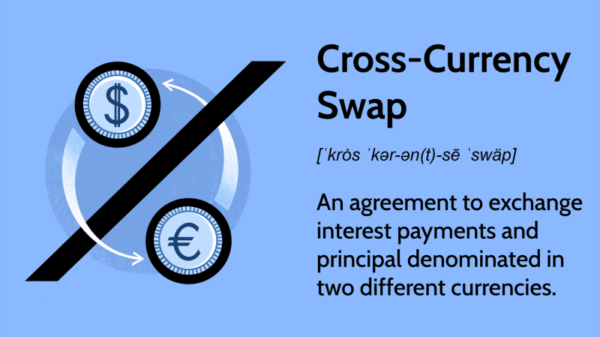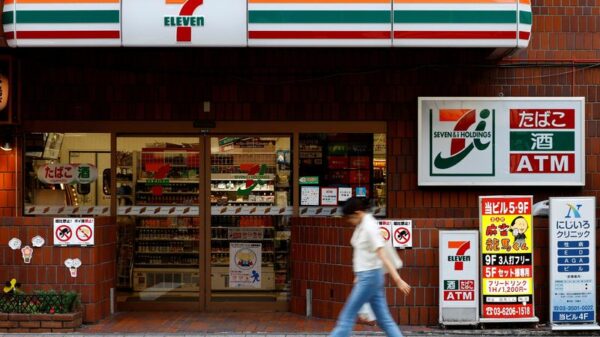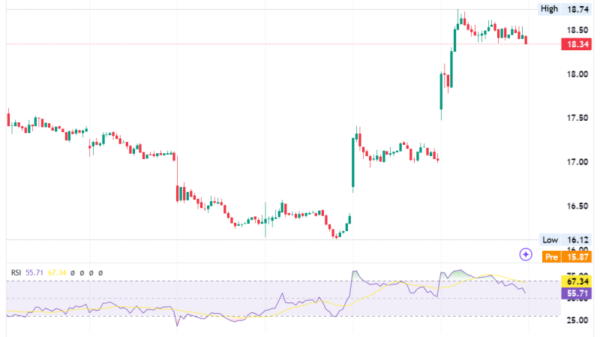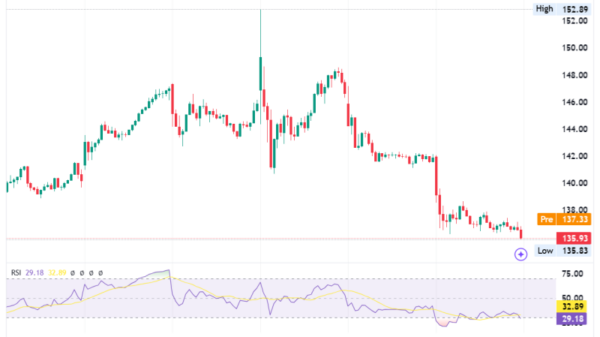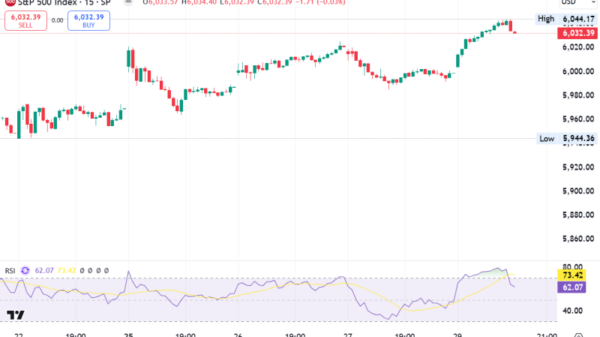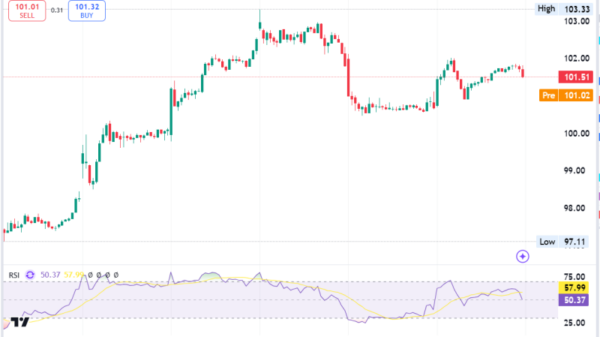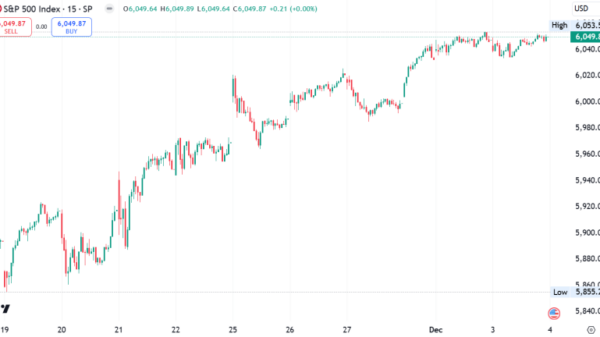Investing.com — BofA Securities said that its clients continued to buy U.S. equities for the seventh straight week, during which the S&P 500 index declined by 2%. Specifically, inflows reached $10 billion – the second-largest amount since 2008 and the biggest since January 2017.
Similar to recent weeks, purchases were spread across both individual stocks and exchange-traded funds (ETFs), with stronger inflows directed toward single stocks. Large-cap stocks saw the bulk of the buying activity, while small caps experienced more subdued inflows.
Institutional and retail investors increased their equity holdings for another week – the third for institutions and the second for retail clients. In contrast, hedge funds were net sellers for the second consecutive week.
The rolling four-week average of inflows from institutional clients hit its highest point in nine months, reflecting a typical pattern of renewed buying activity following October’s tax-loss selling by mutual funds.
“Private clients typically are big sellers in December amid tax loss selling vs. big net buyers in January. While this group has been a buyer of ETFs this month, it has sold single stocks, though slightly less so than in the average December,” BofA strategists led by Jill Carey Hall noted.
Meanwhile, corporate buybacks from BofA’s clients have slowed during the week but remain above seasonal norms as a percentage of the S&P 500’s market cap. Year-to-date, corporate buybacks are on track to hit record levels relative to market cap.
Across sectors, clients directed purchases toward six of the 11 sectors, with Technology, Communication Services, and Industrials leading inflows.
Tech and Communication Services sectors have recorded steady inflows over the past seven and eight weeks, respectively, while Industrials saw their largest inflow since February 2022. Consumer Staples also drew significant interest, posting the highest inflows since April.
On the other hand, Health Care and Consumer Discretionary sectors led the outflows. Health Care, in particular, has experienced withdrawals in four of the past five weeks.
In ETFs, purchases were spread across eight sectors, with Industrials and Technology ETFs seeing the most buying activity. Financial and Real Estate ETFs, however, led outflows.



